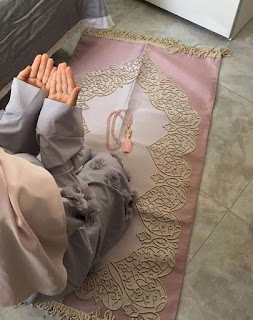WEEK 9
Individual Reflection Report Week 9 – Fieldwork on IIUM as a Sustainable Campus
Introduction
Week 9 of the SCSH1201 course provided an engaging and practical learning experience through fieldwork, focusing on IIUM’s initiatives as a sustainable campus. This week highlighted how institutions, especially universities, play a vital role in promoting sustainability, not only through policies but through student participation and on-campus practices. The session encouraged me to reflect on how I, as a student, can become an agent of change, integrating SDG goals with Islamic principles to serve both the environment and society.
Our fieldwork and observations showed that IIUM is not just a green campus but one striving for holistic sustainability. Sustainability was reflected in many on-campus programs, such as solar energy initiatives, food waste composting, e-bike sharing, and the myTREEvolution project, which supports tree-planting efforts. The Gombak campus even explored ga roundwater concession, demonstrating a commitment to alternative water sourcing.
More than just technology or policies, IIUM promotes daily sustainable habits—like responsible water and energy use, recycling, and supporting the food bank. This aligns with the Campus Sustainability Assessment Framework (CSAF), which evaluates sustainability through environmental, economic, and social lenses. It made me realize that every action, even a small one, contributes to the larger goal of sustainable development.
The fieldwork strongly aligns with several UN Sustainable Development Goals, especially:
-
SDG 11 (Sustainable Cities and Communities): IIUM integrates urban sustainability through green spaces and eco-friendly practices.
-
SDG 12 (Responsible Consumption and Production): Food waste composting and waste reduction campaigns promote efficient resource use.
-
SDG 13 (Climate Action): Programs like solar energy and myTREEvolution reflect IIUM’s effort in reducing carbon footprint and combating climate change.
-
SDG 15 (Life on Land): The tree-planting campaign contributes to biodiversity and forest restoration.
These SDGs emphasize that universities are not just learning centers but living laboratories for sustainable development.
The Qur’anic verses shared during the presentation added a spiritual and moral layer to our understanding of sustainability:
-
Surah Al-Isra’, Ayah 26: “And give the relative his right, and [also] the poor and the traveler, and do not spend wastefully.”
-
Surah Al-Baqarah, Ayah 60: “Eat and drink from the provision of Allah, and do not commit abuse on the earth, spreading corruption.”
These verses remind us that sustainability is not merely a worldly concern—it is an Islamic obligation (amanah). Islam teaches moderation, responsibility, and stewardship (khilafah). Wastefulness is condemned, and caring for the Earth is a sign of faith. This realization strengthened my belief that being sustainable is part of being a good Muslim.
Through this fieldwork, I have come to see that students are not passive observers—they are active contributors. IIUM’s slogan, “Let’s do our part, fulfill our amanah to the Earth”, is a call to action for all of us. I am now committed to:
-
Reducing personal waste and avoiding single-use plastics.
-
Supporting campus recycling stations and composting initiatives.
-
Educating my peers on environmental responsibilities based on both SDG goals and Islamic teachings.
-
Taking shorter showers and conserving water based on the Prophet’s sunnah of using water sparingly, even from a flowing river.
Week 9’s fieldwork has shown me that sustainable development begins locally, and in our case, on campus. IIUM sets a meaningful example by combining global sustainability goals with Islamic values, making the university a truly unique and impactful learning environment. As a student and Muslim, I now better understand my role in creating a future that is just, green, and faithful to our responsibility as stewards of the Earth. I am inspired not only to change my habits, but to inspire change in others.





so interesting
ReplyDeleteGreat explanation
ReplyDeletewow
ReplyDeletegile paduu
ReplyDeleteVery helpful note and reflection on this topic
ReplyDeleteVery informative
ReplyDeleteKeep it up
ReplyDeleteGood
ReplyDeletegood content
ReplyDeletehebat wo
ReplyDeleteGreat informations !
ReplyDelete😁👍🏻👍🏻
ReplyDeletegood job
ReplyDeleteAlhamdulillah
ReplyDeleteWell done 👍🏻👍🏻👍🏻
ReplyDeleteSuch a great information!
ReplyDeleteGood job
ReplyDeleteVery interesting
ReplyDeleteMade me contemplate with your reflection!
ReplyDeleteSolid
ReplyDelete